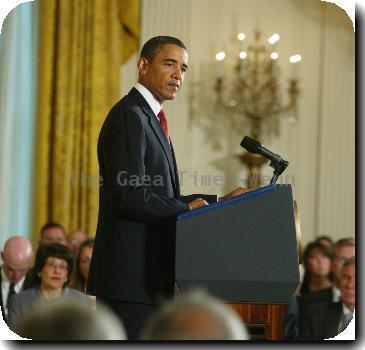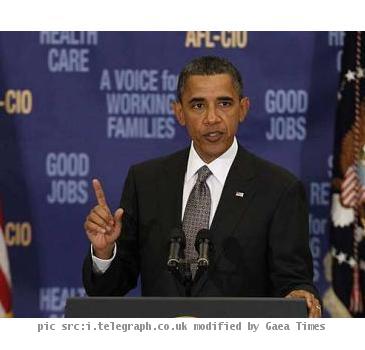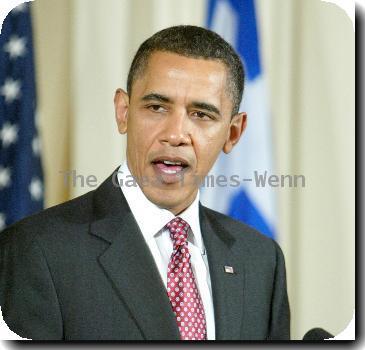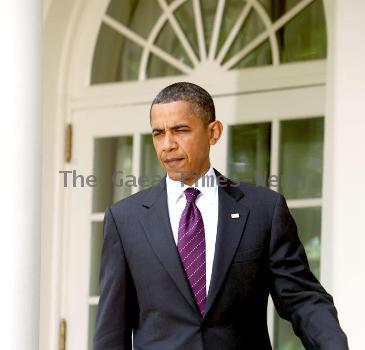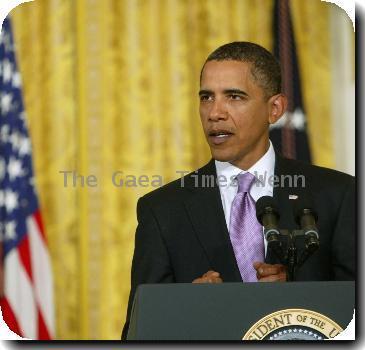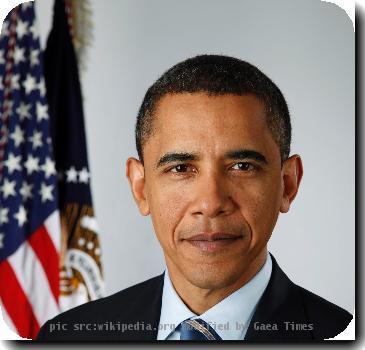Republicans seek to bridge party divide by uniting with tea party candidates ahead of November
By Liz Sidoti, APThursday, September 16, 2010
GOP tries to bring tea party enthusiasm into fold
WASHINGTON — Can this political marriage survive?
More than a half dozen tea party-backed candidates have captured Republican Senate nominations, and now the GOP is trying to bring their rebel supporters’ enthusiasm into the fold for November.
Republicans have little choice but to at least put on a show of unity: Alienating the antiestablishment tea party could undercut GOP efforts to post big Senate gains, perhaps even win control outright.
Judging by how quickly the GOP establishment embraced tea party nominees after earlier primaries in Kentucky, Colorado and Nevada, it may not take long for them to consider insurgent Christine O’Donnell one of their own in Delaware. The state’s Senate primary was the freshest source of Republican division after O’Donnell’s stunning upset of nine-term Rep. Mike Castle. He hasn’t yet rallied behind her but others have, including once and maybe future presidential candidate Mitt Romney.
And, after an initial curt reaction, Sen. John Cornyn’s committee to elect Senate Republicans made its support clear. “Let there be no mistake: The National Republican Senatorial Committee — and I personally as the committee’s chairman — strongly stand by all of our Republican nominees, including Christine O’Donnell in Delaware,” said the Texas lawmaker. He also sent her $42,000.
The message: The GOP has heard the tea party and is listening.
“Eventually you have to respect the will of the voters,” said Delaware’s Republican state auditor Tom Wagner, a longtime Castle friend who said the state GOP is still in shock. He said he’d campaign with O’Donnell.
It’s still not clear how soon — or even if — the state party will unify behind her.
Said a GOP House candidate who lost her primary, Michele Rollins: “We’re going to need a little bit of time to kind of settle down. It’s pretty shocking to Delaware, because we’ve never had an outside influence come in and dictate the result.”
But there are less than seven weeks to Election Day, and the out-of-power GOP can’t afford to turn off tea party voters who, if they turn out, could carry Republican candidates to victory in six or more Senate races, including Democratic-held states like Colorado, Nevada, Wisconsin, and Delaware. Republicans need to gain 10 seats to take control of the Senate, though even GOP advocates say that’s a steep climb.
Although the primaries are over, tension remains between tea partiers and the GOP establishment in some states.
Indiana tea party supporters have had to live with former Indiana Sen. Dan Coats’ GOP Senate primary victory over their preferred candidate.
“It’s almost like a game of chicken: They know they need the tea party movement but it’s almost like they don’t carry us along,” said Monica Boyer, co-founder of Kosciusko County Silent No More, a northern Indiana tea party group. “We really are truly the same team.”
“There’s still a rift” in Oklahoma, said Al Gerhart, a co-founder of the state’s Sooner Tea Party that backed Randy Brogdon in the Republican primary for governor over longtime party stalwart Mary Fallin, who won the race. “There’s a lot more anger out there than the GOP understands.”
Democrats are jumping on the divisions.
“I do believe that what we are witnessing is sort of an implosion taking place within the Republican Party,” said Democratic Rep. Jim Clyburn of South Carolina.
Given the stakes, both Washington and the Delaware Senate candidate were taking steps to bridge the divide quickly.
Cornyn and O’Donnell were planning to meet in the coming days, and she was to speak to social conservatives who make up the GOP’s base at the annual values voters gathering in Washington on Friday. She also has been reaching out to establishment figures like former Delaware congressman and governor Pete DuPont.
The one-time presidential candidate said: “She’s been calling me, and I’d love to hear what she’s thinking.”
There are indications that grass-roots backers are coming to O’Donnell’s aid. Her campaign says that she’s raised $1 million online since Tuesday’s primary.
But it isn’t yet clear whether the establishment support she’s getting now goes beyond lip service. Will the party show her the money?
The Karl Rove-backed outside group American Crossroads has run ads in Kentucky, Colorado and Nevada but hasn’t yet weighed in in Delaware. And Cornyn left open the possibility that Delaware may not get more cash, saying: “We will decide where to best allocate additional financial resources among the large number of competitive races at stake this November.”
His committee still must calculate whether the conservative O’Donnell, who is being hammered with questions about misstatements and inconsistencies in her background, can defeat county executive Chris Coons and win a Democratic-held seat in a state where the Democrats have the edge in voter registration. O’Donnell managed just 35 percent of the vote in losing to then Senate candidate Joe Biden in 2008.
Early polling shows O’Donnell trailing. The NRSC’s money is limited, and Cornyn may decide Republicans have a better shot of picking up Democratic-held states elsewhere.
Still, Cornyn and other longtime party leaders are mindful of the power the tea party is wielding this fall.
“This has given us energy, it’s given us enthusiasm, and in many ways it’s given us highly qualified candidates who are going to be able to take the fight to the Democrats this fall,” former Bush political adviser Rove told Fox News. But he stood by his earlier statement that O’Donnell isn’t one of them.
“My job is not to be a cheerleader for every Republican; it’s to call them as I see them,” he said.
The latest Associated Press-GfK poll suggests just how powerful the tea party could be for the GOP.
Some 40 percent of likely voters call themselves members of the fledgling tea party coalition, and a majority of tea party supporters say they have “a great deal” of interest in the election. Just a third of non-supporters say that. Half of tea party supporters call themselves Republicans, and more than two-thirds at least lean toward the GOP.
More than eight in 10 are hoping for a Republican takeover, and nearly six in 10 say they will be expressing opposition to President Barack Obama with their votes.
But their support for the GOP this fall is not guaranteed.
Although they are most negative about Democrats, tea party supporters’ interest and involvement in the elections is also driven in part by dissatisfaction with the Republican establishment.
The year had just gotten under way when the GOP saw that power.
Most party veterans backed Florida Gov. Charlie Crist in Florida for the GOP Senate nomination there. But tea party supporters rallied behind former state House Speaker Marco Rubio, leading Crist to abandon the GOP and run as an independent.
The establishment eventually shifted to Rubio, who now is in a competitive three-way race with Crist and Democratic Rep. Kendrick Meek.
Then, in Utah, tea party backers at a nominating convention helped Mike Lee defeat longtime Republican Sen. Bob Bennett.
In both cases, party leaders seemed to learn lessons about the tea party and GOP unity.
Within days of the primary dust settling in Kentucky, Nevada and Colorado, the establishment was quick to fall in line behind tea party favorites Rand Paul, Sharron Angle and Ken Buck, sending in money and manpower to ensure they had party resources at their disposal to win hotly contested races.
In Wisconsin, wealthy businessman Ron Johnson had the state GOP’s backing but also courted tea party activists in his primary victory. He immediately won the Washington establishment’s backing in his underdog bid to overtake Sen. Russ Feingold in what’s become a competitive contest.
And when Joe Miller shocked the GOP’s elite and beat Alaska Sen. Lisa Murkowski, the NRSC and Senate GOP leader Mitch McConnell left no question that they would support the nominee — even though Murkowski is weighing a write-in bid in the GOP-leaning state.
Associated Press writers Jim Kuhnhenn and Jim Abrams in Washington, Ken Kusmer in Indianapoilis, Sean Murphy in Oklahoma City, and Randall Chase in Dover, Del., contributed to this report.
Tags: Barack Obama, Campaigns, Colorado, Delaware, District Of Columbia, Events, Indiana, Kentucky, Nevada, North America, Oklahoma, Political Organizations, Political Parties, Senate Elections, United States, United States Presidential Election, Washington
